
Recent study told us that every year in the Orinoco delta from 65.000 to 75.000 parrots are captured to be sold in the illegal market. Those numbers explain us because the criminal trade is one of the main threaten for Parrots and endanger their survival. The Orinoco delta is a wildlife paradise, home to thousands different species, including 49 species of Psittacidae: macaws, parrots, parakeets, and parrotlets. Boating by a Warao traditional canoe you can have the privilege to live an extraordinary travel adventure in the middle of the animal life that since thousand years has flowed together with the riverís water. As in the whole Venezuela, however, here too, a keen eye, who wants to look beyond the contradictions, can catch the evident signs of continuous aggression that this area undergoes ... read more
While boating on the great river is not rare to find, as has happened to us, the sad spectacle of dozens of parrots tied on long rods transported by canoe to the villages. There the birds will be sold to some smugglers coming from Europe or the United States, final destinations of this trade. the Warao, driven by an economic system that keeps them on the edge, despite the slogan of President Chaves, sell in exchange for a few dollars, not only the beautiful creatures that animate their land but also their identity. A small parrot is quoted 10 $ for the local people, the biggest can reach quote 3 or 4 times higher. Arriving in the USA and European market (where is the real core of this business) the same parrots can have a 20 times higher value. Theoretically the Psittacidae, along with all song and ornamental birds, are protected under the Venezuelan Wildlife Protection Law (Ley de Protection a La Fauna Silvestre1970), which forbids hunting, trading or transporting non-game species. Unfortunately the law does not forbid ownership, and it is therefore legally.
